- Home
- Nnedi Okorafor
Binti Page 6
Binti Read online
Page 6
I frowned, not wanting to move. Before the realization hit me, I knew to drop into meditation, treeing out of desperation. I held myself in there for a moment, equations flying through my mind, like wind and sand. Around me, I heard movement and, still treeing, I saw that the soldiers were leaving the room. The professors were getting up, talking among themselves in their various ways. All except Okpala. She was looking right at me.
I slowly lifted up one of my locks and brought it forward I rubbed off the ojtize. It glowed a strong deep blue like the sky back on earth on a clear day, like Okwu and so many of the other Meduse, like the uniforms of the Oomza Uni soldiers. And it was translucent. Soft, but tough. I touched the top of my head and pressed. They felt the same and . . . I felt my hand touching them. The tingling sensation was gone. My hair was no longer hair. There was a ringing in my ear as I began to breathe heavily, still in meditation. I wanted to tear off my clothes and inspect every part of my body. To see what else that sting had changed. It had not been a sting. A sting would have torn out my insides, as it did for Heru.
“Only those,” Okwu said. “Nothing else.”
“This is why I understand you?” I flatly asked. Talking while in meditation was like softly whispering from a hole deep in the ground. I was looking up from a cool dark place.
“Yes.”
“Why?”
“Because you had to understand us and it was the only way,” Okwu said.
“And you needed to prove to them that you were truly our ambassador, not prisoner,” the chief said. It paused. “I will return to the ship; we will make our decision about Okwu.” It turned to leave and then turned back. “Binti, you will forever hold the highest honor among the Meduse. My destiny is stronger for leading me to you.” Then it left.
I stood there, in my strange body. If I hadn’t been deep in meditation I would have screamed and screamed. I was so far from home.
* * *
I’m told that news of what had happened spread across all Oomza Uni within minutes. It was said that a human tribal female from a distant blue planet saved the university from Meduse terrorists by sacrificing her blood and using her unique gift of mathematical harmony and ancestral magic. “Tribal”: that’s what they called humans from ethnic groups too remote and “uncivilized” to regularly send students to attend Oomza Uni.
Over the next two days, I learned that people viewed my reddened dark skin and strange hair with wonder. And when they saw me with Okwu, they grew tense and quiet, moving away. Where they saw me as a fascinating exotic human, they saw Okwu as a dangerous threat. Okwu was of a warlike people who, up until now, had only been viewed with fear among people from all over. Okwu enjoyed its infamy, whereas I just wanted to find a quiet desert to walk into so I could study in peace.
“All people fear decisive, proud honor,” Okwu proclaimed.
We were in one of the Weapons City libraries, staring at the empty chamber where the chief’s stinger had been kept. A three-hour transport from Math City, Weapons City was packed with activity on every street and crowded with sprawling flat gray buildings made of stone. Beneath each of these structures were inverted buildings that extended at least a half-mile underground where only those students, researchers, and professors involved knew what was being invented, tested, or destroyed. After the meeting, this was where they’d taken me, the chief, and Okwu for the retrieval of the stinger.
We’d been escorted by a person who looked like a small green child with roots for a head, who I later learned was the head professor of Weapons City. He was the one who went into the five-by-five-foot case made of thick clear crystal and opened it. The stinger was placed atop a slab of crystal and looked like a sharp tusk of ice.
The chief slowly approached the case, extended an okuoko, and then let out a large bluish plume of gas the moment its okuoko touched the stinger. I’ll never forget the way the chief’s body went from blue to clear the moment the stinger became a part of it again. Only a blue line remained at the point of demarcation where it had reattached—a scar that would always remind it of what human beings of Oomza Uni had done to it for the sake of research and academics.
Afterward, just before the chief and the others boarded the Third Fish that would take them back to their own ship just outside the atmosphere, upon Okwu’s request, I knelt before the chief and placed its stinger on my lap. It was heavy and it felt like a slab of solid water and the edge at its tip looked like it could slice into another universe. I smeared a dollop of my otjize on the blue scar where it had reattached. After a minute, I wiped some of it away. The blue scar was gone. Their chief was returned to its full royal translucence, they had the half jar of otjize Okwu had taken from me, which healed their flesh like magic, and they were leaving one of their own as the first Meduse to study at the great Oomza University. The Meduse left Oomza Uni happier and better off than when they’d arrived.
* * *
My otjize. Yes, there is a story there. Weeks later, after I’d started classes and people had finally started to leave me be, opting to simply stare and gossip in silence instead, I ran out of otjize. For days, I’d known it would happen. I’d found a sweet-smelling oil of the same chemical makeup in the market. A black flower that grew in a series of nearby caverns produced the oil. But a similar clay was much harder to find. There was a forest not far from my dorm, across the busy streets, just beyond one of the classroom buildings. I’d never seen anyone go into it, but there was a path opening.
That evening, before dark, I walked in there. I walked fast, ignoring all the stares and grateful when the presence of people tapered off the closer I got to the path entrance. I carried my satchel with my astrolabe, a bag of nuts, my edan in my hands, cool and small. I squeezed my edan as I left the road and stepped onto the path. The forest seemed to swallow me within a few steps and I could no longer see the purpling sky. My skin felt near naked, the layer of otjize I wore was so thin.
I frowned, hesitating for a moment. We didn’t have such places where I came from and the denseness of the trees, all the leaves, the small buzzing creatures, made me feel like the forest was choking me. But then I looked at the ground. I looked right there, at my sandaled feet and found precisely what I needed.
I made the otjize that night. I mixed it and then let it sit in the strong sunshine for the next day. I didn’t go to class, nor did I eat that day. In the evening, I went to the dorm and showered and did that which my people rarely do: I washed with water. As I let the water run through my hair and down my face, I wept. This was all I had left of my homeland and it was being washed into the runnels that would feed the trees outside my dorm.
When I finished, I stood there, away from the running stream of water that flowed from the ceiling. Slowly, I reached up. I touched my “hair.” The okuoko were soft but firm and slippery with wetness. They touched my back, soft and slick. I shook them, feeling them otjize-free for the first time.
I shut my eyes and prayed to the Seven; I hadn’t done this since arriving on the planet. I prayed to my living parents and ancestors. I opened my eyes. It was time to call home. Soon.
I peeked out of the washing space. I shared the space with five other human students. One of them just happened to be leaving as I peeked out. As soon as he was gone, I grabbed my wrapper and came out. I wrapped it around my waist and I looked at myself in the large mirror. I looked for a very very long time. Not at my dark brown skin, but where my hair had been. The okuoko were a soft transparent blue with darker blue dots at their tips. They grew out of my head as if they’d been doing that all my life, so natural looking that I couldn’t say they were ugly. They were just a little longer than my hair had been, hanging just past my backside, and they were thick as sizable snakes.
There were ten of them and I could no longer braid them into my family’s code pattern as I had done with my own hair. I pinched one and felt the pressure. Would they grow like hair? Were they hair? I could ask Okwu, but I wasn’t ready to ask it anything. Not yet.
I quickly ran to my room and sat in the sun and let them dry.
Ten hours later, when dark finally fell, it was time. I’d bought the container at the market; it was made from the shed exoskeleton of students who sold them for spending money. It was clear like one of Okwu’s tentacles and dyed red. I’d packed it with the fresh otjize, which now looked thick and ready.
I pressed my right index and middle finger together and was about to dig out the first dollop when I hesitated, suddenly incredibly unsure. What if my fingers passed right through it like liquid soap? What if what I’d harvested from the forest wasn’t clay at all? What if it was hard like stone?
I pulled my hand away and took a deep breath. If I couldn’t make otjize here, then I’d have to . . . change. I touched one of my tentacle-like locks and felt a painful pressure in my chest as my mind tried to take me to a place I wasn’t ready to go to. I plunged my two fingers into my new concoction . . . and scooped it up. I spread it on my flesh. Then I wept.
I went to see Okwu in its dorm. I was still unsure what to call those who lived in this large gas-filled spherical complex. When you entered, it was just one great space where plants grew on the walls and hung from the ceiling. There were no individual rooms, and people who looked like Okwu in some ways but different in others walked across the expansive floor, up the walls, on the ceiling. Somehow, when I came to the front entrance, Okwu would always come within the next few minutes. It would always emit a large plume of gas as it readjusted to the air outside.
“You look well,” it said, as we walked down the walkway. We both loved the walkway because of the winds the warm clear seawater created as it rushed by below.
I smiled. “I feel well.”
“When did you make it?”
“Over the last two suns,” I said.
“I’m glad,” it said. “You were beginning to fade.”
It held up an okuoko. “I was working with a yellow current to use in one of my classmate’s body tech,” it said.
“Oh,” I said, looking at its burned flesh.
We paused, looking down at the rushing waters. The relief I’d felt at the naturalness, the trueness of the otjize immediately started waning. This was the real test. I rubbed some otjize from my arm and them took Okwu’s okuoko in my hand. I applied the otjize and then let the okuoko drop as I held my breath. We walked back to my dorm. My otjize from Earth had healed Okwu and then the chief. It would heal many others. The otjize created by my people, mixed with my homeland. This was the foundation of the Meduse’s respect for me. Now all of it was gone. I was someone else. Not even fully Himba anymore. What would Okwu think of me now?
When we got to my dorm, we stopped.
“I know what you are thinking,” Okwu said.
“I know you Meduse,” I said. “You’re people of honor, but you’re firm and rigid. And traditional.” I felt sorrow wash over and I sobbed, covering my face with my hand. Feeling my otjize smear beneath it. “But you’ve become my friend,” I said. When I brought my hand away, my palm was red with otjize. “You are all I have here. I don’t know how it happened, but you are . . .”
“You will call your family and have them,” Okwu said.
I frowned and stepped away from Okwu. “So callous,” I whispered.
“Binti,” Okwu said. It plumed out gas, in what I knew was a laugh. “Whether you carry the substance that can heal and bring life back to my people or not, I am your friend. I am honored to know you.” It shook its okuoko, making one of them vibrate. I yelped when I felt the vibration in one of mine.
“What is that?” I shouted, holding up my hands.
“It means we are family through battle,” it said. “You are the first to join our family in this way in a long time. We do not like humans.”
I smiled.
He held up an okuoko. “Show it to me tomorrow,” I said, doubtfully.
“Tomorrow will be the same,” it said.
When I rubbed off the otjize the burn was gone.
* * *
I sat in the silence of my room looking at my edan as I sent out a signal to my family with my astrolabe. Outside was dark and I looked into the sky, at the stars, knowing the pink one was home. The first to answer was my mother.
Acknowledgments
I’d like to thank my daughter, Anyaugo, for essentially coming up with the plot of this novella. When you get stuck, ask a plucky imaginative eleven-year-old what happens next in the story; you’ll be unstuck in no time. Many thanks to my Tor.com editor, Lee Harris (one of the prime visionaries of Tor.com’s novella program), and my agent, Don Maass (for knowing precisely the right place for this story). Thanks to my beta reader, Angel Maynard, for all her encouragement. Lastly, I’d like to thank a jellyfish, someone close to me with deep traditional and tribal beliefs, the lovely Himba people of Namibia, and the futuristic ancient lands of the United Arab Emirates for inspiring me to explore outer space.
About the Author
Photograph by Anyaugo Okorafor-Mbachu
Nnedi Okorafor was born in the United States to two Igbo (Nigerian) immigrant parents. She holds a Ph.D. in English and is an associate professor of creative writing, currently teaching at the University at Buffalo. She has been the winner of many awards for her short stories and young adult books, including the Wole Soyinka Africa Prize for Literature, the Macmillan Writer’s Prize for Africa, Le Prix Imaginales (Best Translated Novel), the Carl Brandon Parallax Award, the Black Excellence Award for Outstanding Achievement in Literature, and the Strange Horizons Readers Choice Award for Nonfiction. She has also been a finalist for the Essence Magazine Literary Award, Tiptree Award, a British Science Fiction Association Award (Best Novel), and the Theodore Sturgeon Award. She was also a nominee for the NAACP Imagine Award, among others. Nnedi’s stories are inspired by her Nigerian heritage, her many trips there and her travels around the world. Her first published adult novel, Who Fears Death, won the World Fantasy Award for Best Novel. Nnedi lives in Illinois with her daughter, Anyaugo, and family.
Also by Nnedi Okorafor
Who Fears Death
Kabu-Kabu
Lagoon
The Book of Phoenix
Younger readers
Zahrah the Windseeker (as Nnedi Okorafor-Mbachu)
The Shadow Speaker (as Nnedi Okorafor-Mbachu)
Akata Witch
The Girl with the Magic Hands
Long Juju Man
Thank you for buying this Tom Doherty Associates ebook.
To receive special offers, bonus content, and info on new releases and other great reads, sign up for our newsletters.
Or visit us online at us.macmillan.com/newslettersignup
TOR•COM
Science fiction. Fantasy. The universe. And related subjects.
*
More than just a publisher's website, Tor.com is a venue for original fiction, comics, and discussion of the entire field of SF and fantasy, in all media and from all sources. Visit our site today—and join the conversation yourself.
Table of Contents
Title Page
Copyright Notice
Dedication
Begin Reading
Acknowledgments
About the Author
Also by Nnedi Okorafor
Copyright Page
This is a work of fiction. All of the characters, organizations, and events portrayed in this novella are either products of the author’s imagination or are used fictitiously.
binti
Copyright © 2015 by Nnedi Okorafor
Cover art copyright © 2015 by Dave Palumbo
All rights reserved.
A Tor.com Book
Published by Tom Doherty Associates, LLC
175 Fifth Avenue
New York, NY 10010
www.tor.com
Tor® is a registered trademark of Tom Doherty Associates, LLC.
ISBN 978-0-7653-8446-1 (e-book)
ISBN 978-0-7653-8525-3 (trade paperback)
First Edition: September 2015
Our eBooks may be purchased in bulk for promotional, educational, or business use. Please contact the Macmillan Corporate and Premium Sales Department at 1-800-221-7945, ext. 5442, or by e-mail at [email protected].

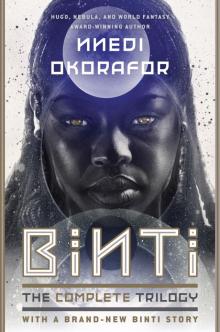 Binti, The Complete Trilogy: Binti ; Home ; The Night Masquerade
Binti, The Complete Trilogy: Binti ; Home ; The Night Masquerade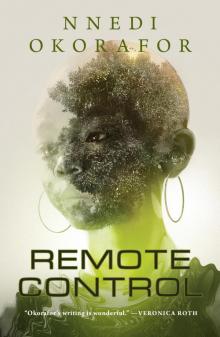 Remote Control
Remote Control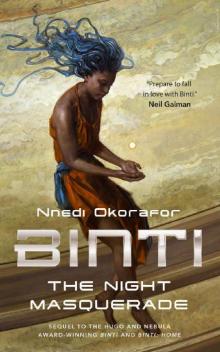 Binti: The Night Masquerade
Binti: The Night Masquerade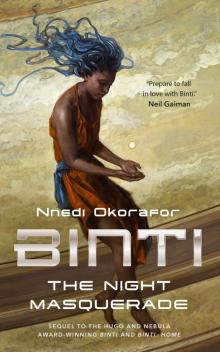 Binti--The Night Masquerade
Binti--The Night Masquerade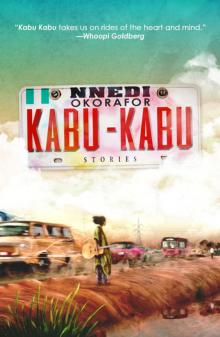 Kabu Kabu
Kabu Kabu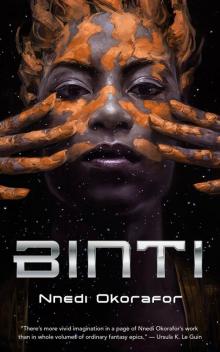 Binti
Binti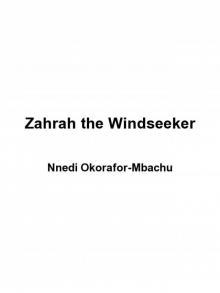 Zahrah the Windseeker
Zahrah the Windseeker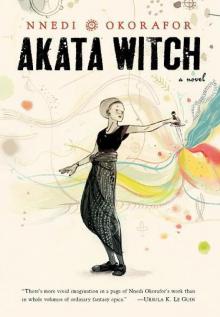 Akata Witch: A Novel
Akata Witch: A Novel Ikenga
Ikenga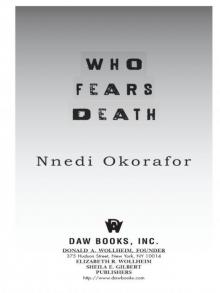 Who Fears Death
Who Fears Death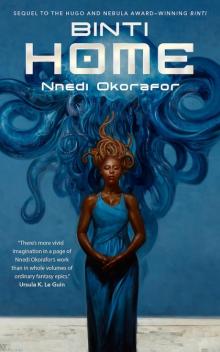 Binti--Home
Binti--Home Lagoon
Lagoon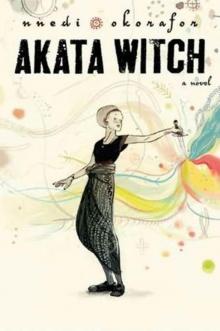 Akata Witch
Akata Witch The Book of Phoenix
The Book of Phoenix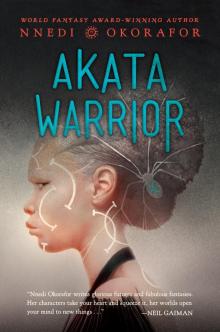 Akata Warrior
Akata Warrior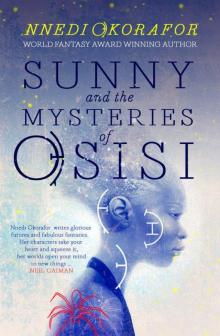 Sunny and the Mysteries of Osisi
Sunny and the Mysteries of Osisi